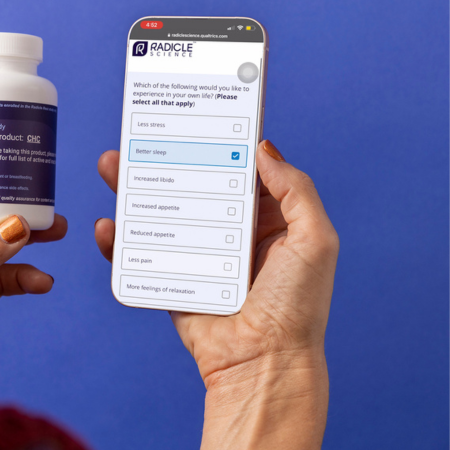There is an overall misperception that survey research is inferior to studies relying on biomarkers to test endpoints, undermining an important alternative in claim substantiation. Neither survey research nor biomarker research is superior. What is correct is to match the appropriate research design with the questions being asked. For example, if attempting to measure if a particular intervention improves gastrointestinal distress such as bloating, a survey is ideal to assess if the person experiences relief from such symptoms, an objective measure (like a biomarker) will not accurately assess if a person feels better after the intervention.
However, it is important to point out that a randomized controlled study utilizing surveys should be equally as rigorous and well-controlled as one utilizing blood, saliva, or other biological-based outcomes. Utilizing well designed surveys is key to scientifically sound survey research.
Recently, there has been increased interest related to incorporating the patient and their experience related to their care into the assessment of the success of their treatment. Well designed assessments can be a key parameter in evaluating if the patient feels better from a given treatment. From this initiative the Patient-Reported Outcomes Measurement Information System (PROMIS) was developed with support from the National Institutes of Health (NIH).
PROMIS are unique and robust assessment tools for a variety of reasons. First, they are available without licensing or royalty fees. All the assessments have been tested and validated in large and diverse populations, making them ideal for assessment of many health-related outcomes across populations appropriately representing the demographic of the US population. The PROMIS were originally developed for medical research, but have been adapted for use in healthy people, and therefore offer several advantages for use in the dietary supplement industry.
For researchers, PROMIS:
- Provides standardization. Because the measurements are standardized, the information collected is consistent and allows for comparison across studies and in building the totality of the evidence for a product.
- Covers a wide range of outcomes. From cognitive function to GI health, PROMIS covers a wide range of health outcomes allowing for a comprehensive assessment of the impact of dietary supplements on various aspects of health.
- Delivers valuable feedback. The data gathered can also provide valuable feedback for formula and product development and improvement, leading to better products that meet consumer needs more effectively.
For marketers, PROMIS:
- Supports claim credibility. The extensive validity and reliability testing provides scientific credibility to claims substantiation.
- Uncovers evidence-based marketing gems. PROMIS is designed to assess how the person taking the survey feels. For dietary supplements, understanding and highlighting the consumer’s perspective can be a powerful marketing tool and can help in informing marketing strategies and tailoring marketing messages.
In an industry often scrutinized for unsubstantiated claims, the use of validated surveys from the PROMIS initiative in the dietary supplement industry can enhance scientific credibility, ensure regulatory compliance, improve consumer trust, and provide valuable insights for both marketing and product development. When it comes to unsubstantiated claims, choose the one PROMIS you can keep.
People with good intentions make promises. People with good character keep them. – Anonymous


